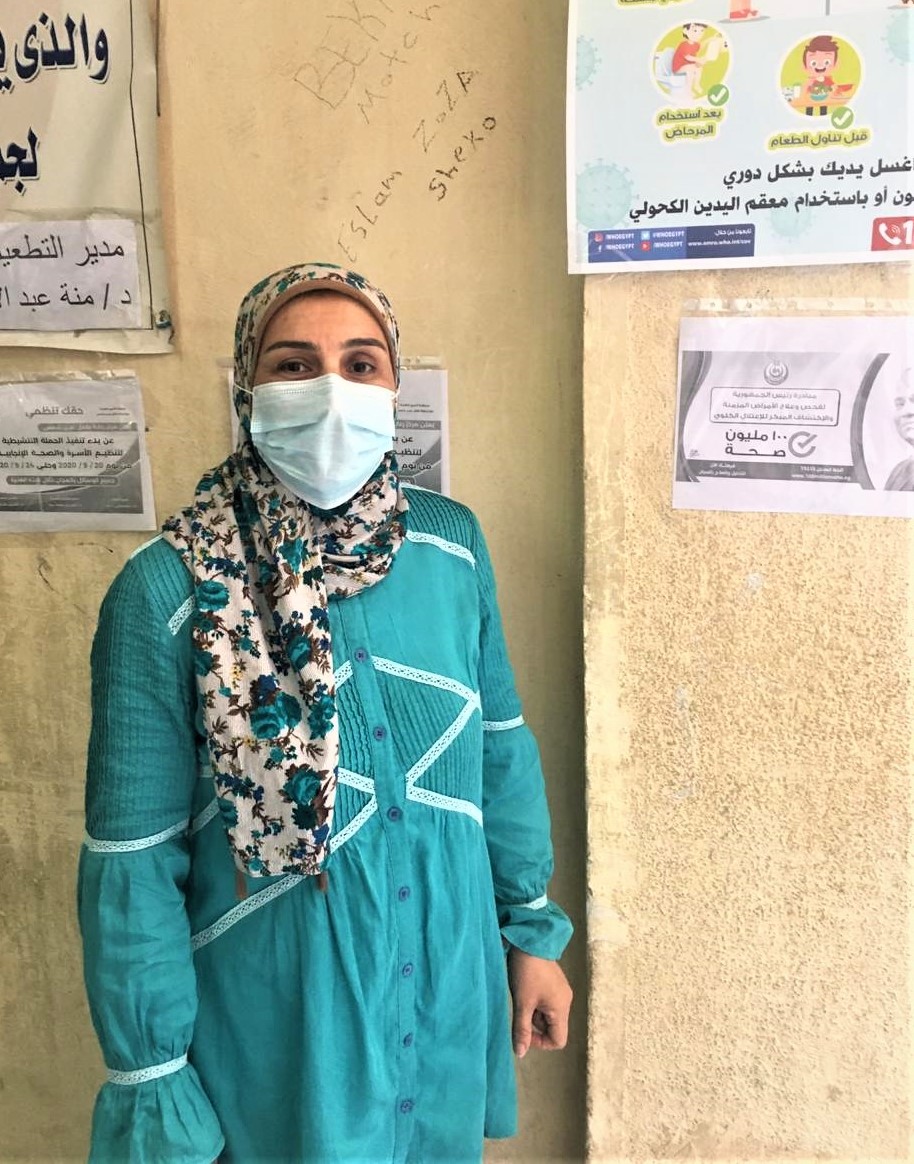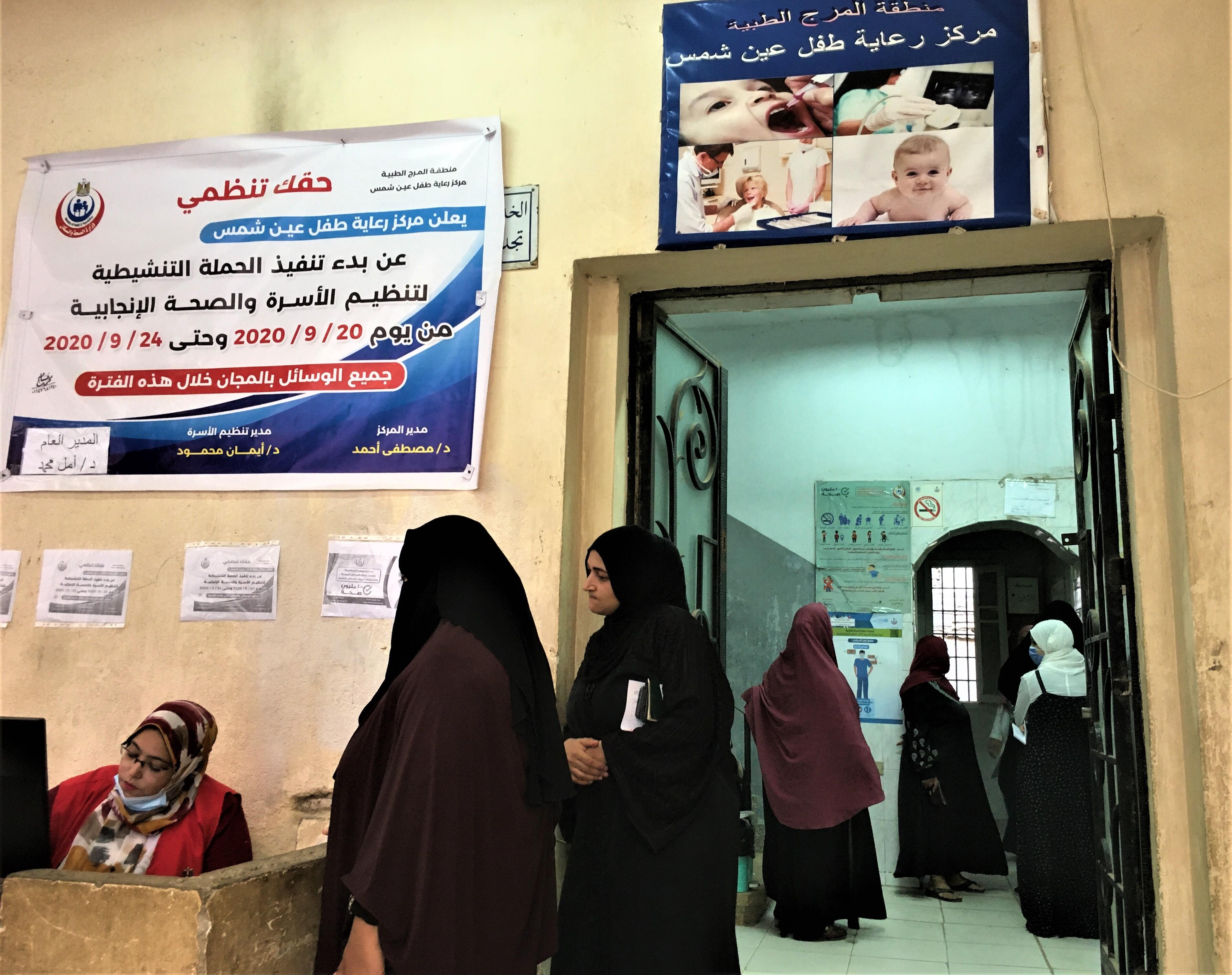Over five days, Sahar Hosni will tackle five different topics in the seminars she gives at the Ain Shams healthcare center in a Cairo suburb.
“Each seminar targets a different group of people,” Hosni, a media official affiliated with the Population and the Family Planning Sector at the Ministry of Health and Population, explains, “Yesterday we were addressing men and tackled their role in family planning.”
Some men, Hosni laments, want one baby right after the other. “So we explain to them the importance of spacing between births.”
The five days are the duration of the Your Right to Plan campaign, taking place around the country, offering free family planning counseling and services, including free contraceptives through fixed and mobile clinics, public and central hospitals, and maternal and child health centers.
The Your Right to Plan campaign is resuming for the first time since the onset of the COVID-19 pandemic. During September 20-24 and September 26-30, 2020, the campaign is taking place in Cairo, Sohag, Beheira, Minya and Sharqeya.
The campaign conducted five rounds under the EU Support to Egypt’s National Population Strategy since December 2018. Overall, it reached 1,327,502 women thus far with different family planning services.
The seminars offered by the campaign at the health centers are given by community and religious leaders, family planning specialists and media officials.
“We explain to women how they can plan their families and when they can start using contraceptives,” Hosni explains, “for example some methods can be used right after the mother has given birth.”

Through the seminars, women are also presented with the different available family planning methods, leaving them to choose whichever they see fit for themselves, in close consultation with specialized service providers to ensure their medical eligibility.
“We explain the advantages and disadvantages of each method and leave it up to the woman to choose.”
However, in light of the restrictions imposed by the COVID-19 pandemic, women are encouraged to use long-term contraceptives in order to limit their visits to the healthcare center.
This comes as part of the EU Support to Egypt’s National Population Strategy project, which aims to increase the use of voluntary, rights-based family planning, with the support of an EU-grant of €27 Million.
Listening to Hosni’s seminar in the healthcare center’s outdoor waiting area was Tahani Ali.
“She told us about all the different family planning methods, so I was convinced that the IUD is the most suitable one for me after she explained to me all its side effects,” Ali says.
A mother of three children, Ali ensured that her children were three years apart from each other.
“Spacing is important, it gives me a chance to breastfeed and gave each child their right,” Ali says, “having children so close together is difficult and would negatively affect my health.”
The seminars offered at the healthcare center do not only tackle family planning issues, outreach workers also discuss precautionary measures against COVID-19 and preventive actions women can take to protect themselves and their families.
Last week, Rehab Youssef, an outreach worker, made sure to promote the campaign and announce that the center will be offering free family planning services.
She also explained to the women who frequent the center the different precautionary measures to be taken at the healthcare center, including the importance of social distancing, wearing masks and washing their hands.
In her seminars, Youssef says she educates mothers on the importance of family planning, highlighting that it affects the whole family and society.
“The mother is the main pillar of the society and if she’s not planning her family it will affect her health, which will in turn affect her family and the whole society,” Youssef explains.
Tomorrow, Hosni says, the seminar is addressing mothers in law, due to the central role they have in the decision making process related to family planning.
“We will attempt to correct misconceptions they might have around certain family planning methods.”


